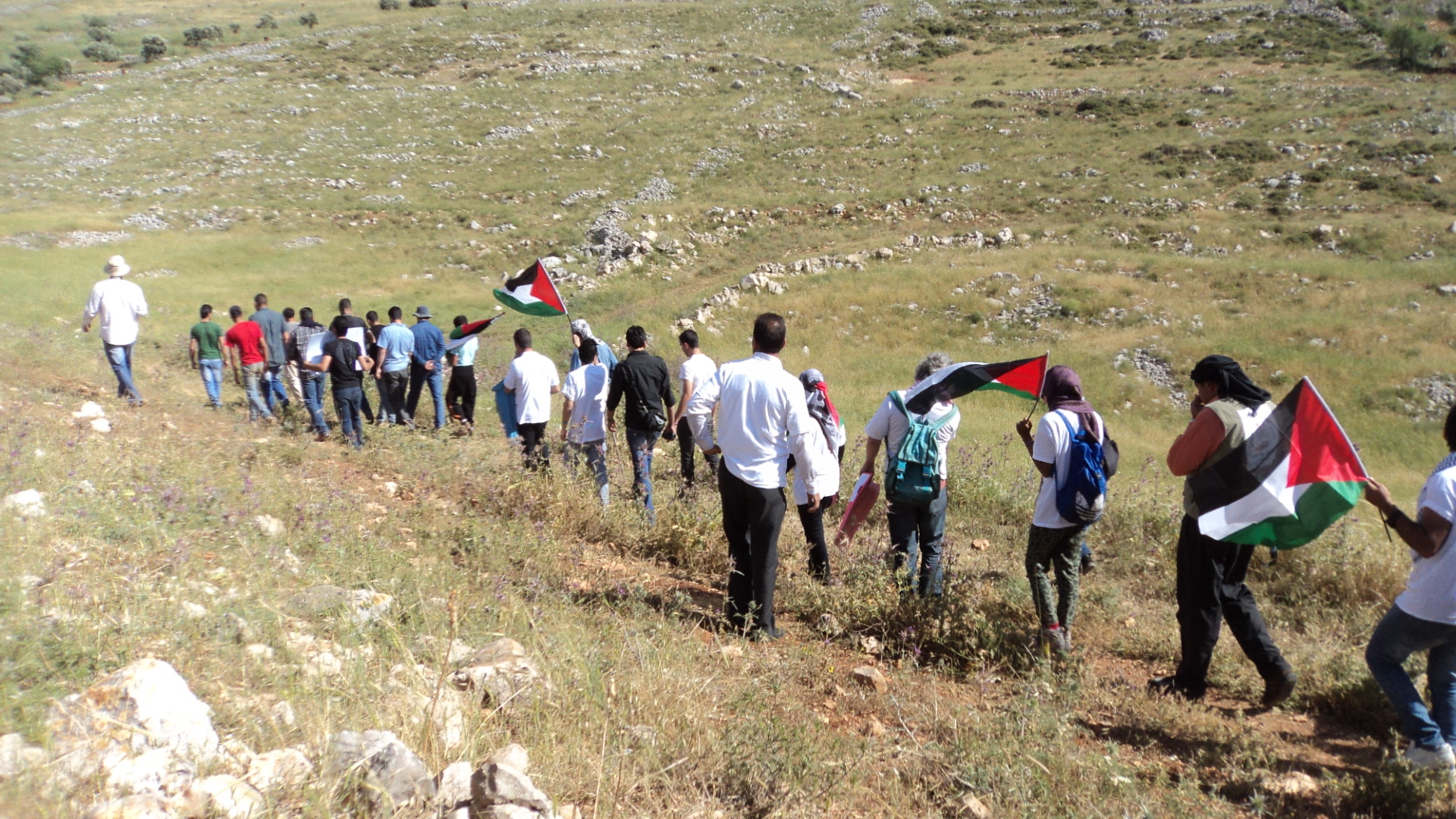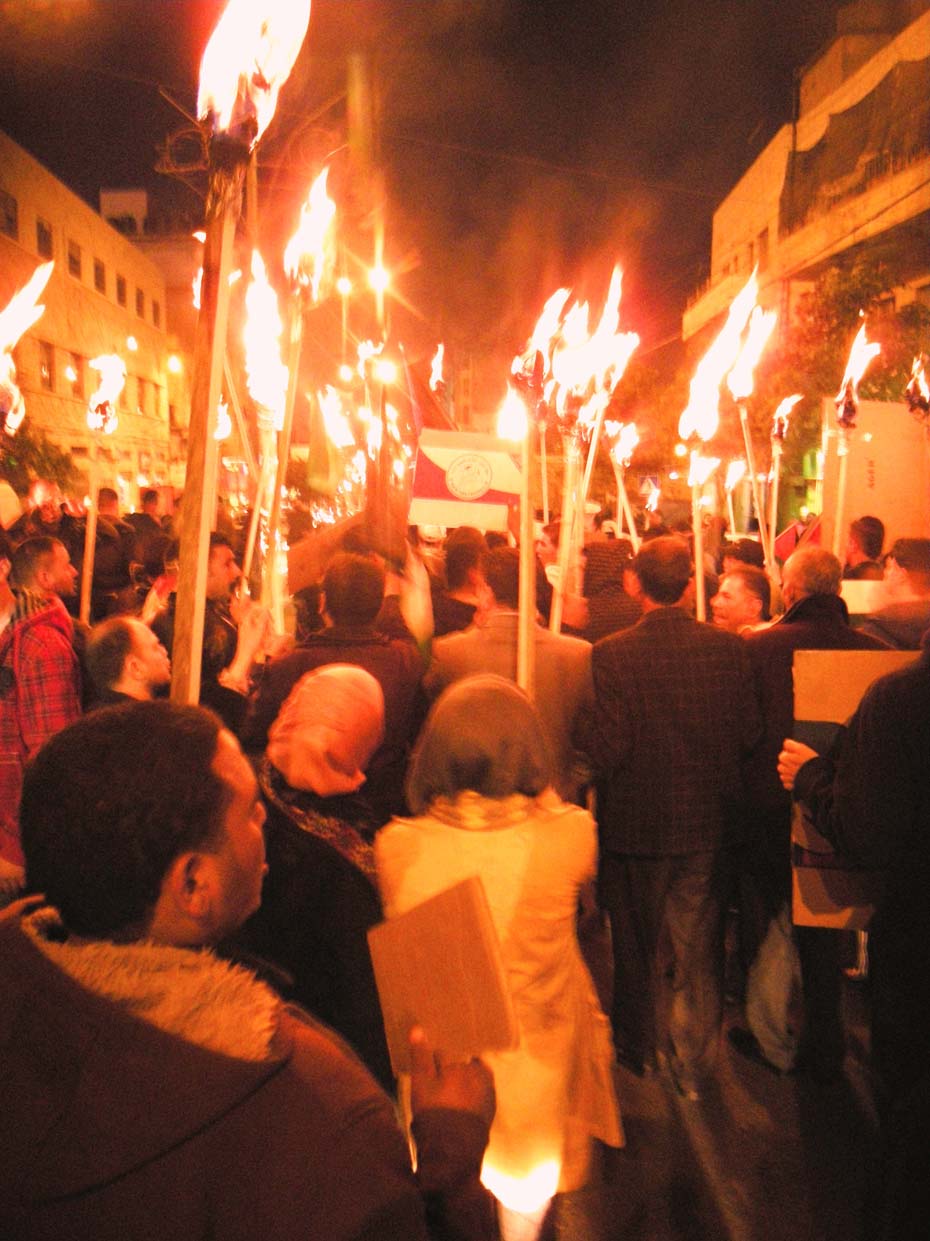Tag: Demonstration
-
On June 5th support the Palestinian refugees’ right to return
22 May 2011 | International Solidarity Movement The right to return is a core goal of the Palestinian liberation struggle. Since 1947-1948, when over 750,000 Palestinians were forcibly expelled from their homes – and more than 700,000 were ethnically cleansed from their country altogether – they and their descendants have organized to demand the rectification…
-
Israeli army supress peaceful demonstration in Iraq Burin
21 May 2011 | International Solidarity Movement Around 80 Palestinians and international activists held a peaceful demonstration today in the village of Iraq Burin to protest the theft of village land for settlement construction. The demonstration began at about 16.00 when protesters marched through the village and over the hills towards the illegal settlement of…
-
Demonstrations mark Nakba Day in Hebron
16 May 2011 | International Solidarity Movement Approximately one thousand people demonstrated in Hebron during the weekend to commemorate the Nakba day. Several protesters were injured after violent responses from the Israeli army. On Sunday the 15th May around a thousand Palestinians joined in a demonstration to commemorate the Nakba, (in English literally “the catastrophe”)…


